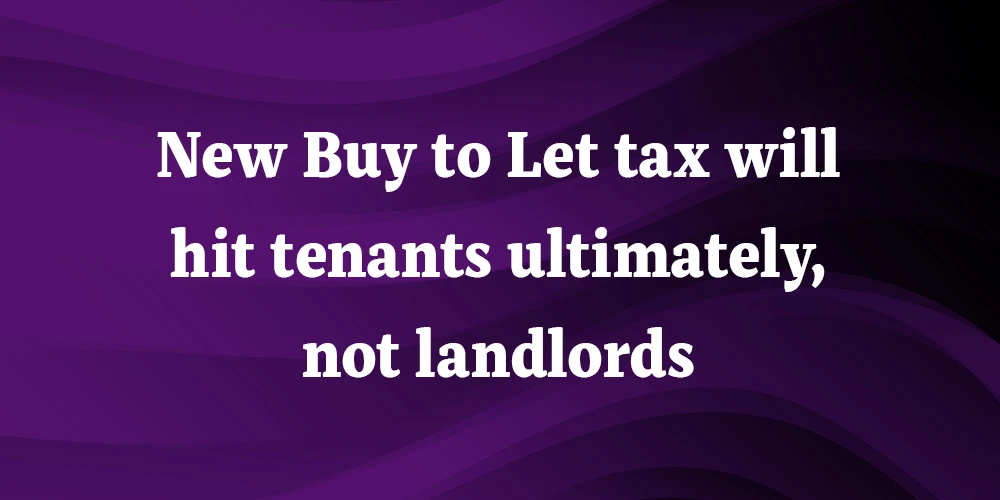Buy-to-Let Tax Changes Will Raise Rents and Hurt Tenants

We know that significant changes have been made to higher-rate tax for landlords with buy-to-let properties. Many of you might assume that it’s the landlords who will bear the financial burden, which some might argue isn’t a bad thing, especially for those with multiple properties.
But what if we told you that, ultimately, it’s the tenants who will suffer in the long run?
The government’s changes, which limit tax relief on buy-to-let properties, have pushed some landlords into higher tax brackets based on their rental income.
With this news, it’s easy to think that landlords will be reined in and that the buy-to-let market might become fairer. However, that’s not the case. Instead, many landlords have responded to these tax implications by increasing their charges—often doubling what they are taxed. For instance, if landlords are 10% out of pocket due to taxation, they might raise rents by 20% to cover the shortfall.
Landlords Passing the Costs to Tenants
Many landlords have already raised their rents in anticipation of further changes. Currently, landlords pay tax on their profits, but in three years’ time, they will have to pay tax on their total rental revenue.
This new taxation framework could make it increasingly difficult for tenants to afford their rent, forcing some out of their homes. Others may struggle to make ends meet as rent increases eat into their monthly budgets.
Faced with these changes, landlords will likely choose one of two options: increase rent or sell their properties. Realistically, most landlords will first test how much rent tenants are willing to pay before considering selling. This means that tenants, not landlords, are the ones who will bear the brunt of these changes.
For tenants, the consequences are dire. Many become emotionally attached to their homes and would be devastated to lose them. Landlords, aware of this, often exploit it, passing on the costs of new tax rules to tenants through higher rents.
The Impact on Tenants
Worryingly, many landlords impacted by these tax changes have already indicated they plan to increase rents by several hundred pounds. For tenants, this could mean the difference between enjoying their home and being forced to leave. Even those who manage to afford the rent increases will feel the strain, as it reduces their disposable income and impacts their quality of life.
This situation could create a new form of rental poverty, with tenants left struggling to make ends meet. It’s a case of attempting to tax the rich, but the reality is that landlords will simply pass these costs downhill. Rent increases are inevitable.
Alternatives for Landlords
From a landlord’s perspective, there are a few steps they can take to mitigate the impact on tenants. However, it remains to be seen how many will choose these options rather than shifting the financial burden.
Remortgaging: Landlords can remortgage to secure better deals, but this option requires swift action as many favourable rates are disappearing.
Incorporation: Some landlords may consider forming a company. By doing so, they could benefit from the lower corporation tax rates introduced by the government. Solicitors can assess whether this approach is viable for individual landlords.
